Western Massachusetts loggers, environmental activists await state forest management policy
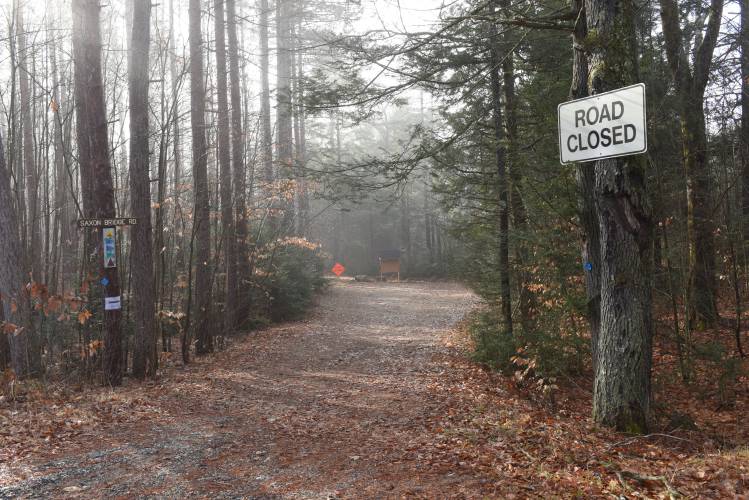
Saxon Bridge Road off of Farley Road in the Wendell State Forest. STAFF FILE PHOTO/PAUL FRANZ
| Published: 01-02-2024 7:11 PM |
As the Executive Office of Energy and Environmental Affairs passes its self-imposed deadline for a new forest management policy after a logging moratorium, people on all sides of the issue are concerned about the future of the state’s forests.
The early stages of the Healey-Driscoll administration’s new forest management program, dubbed ”Forests as Climate Solutions,” included two public input sessions and climate-oriented forest management guidelines created by a committee of 12 experts in the field. From there, the Executive Office of Energy and Environmental Affairs is expected to decide what to do with the current logging moratorium and change the forest management policy based on the input received.
According to William Moomaw, a professor of international environmental policy at Tufts University and a member of the committee, the guidelines are expected to be made public on Jan. 3.
“The Executive Office of Energy and Environmental Affairs is on track to complete its review of the state’s climate-smart forest management practices,” Executive Office of Energy and Environmental Affairs Deputy Communications Director Danielle Burney wrote in a statement. “We appreciate the work of the Climate Forestry Committee and look forward to sharing their recommendations soon. We are keeping our commitment to reviewing and resuming our forestry program.”
Because a majority of forests owned by the state are in western Massachusetts, this issue disproportionately affects areas like Franklin County and the North Quabbin region, compared to the eastern part of the state.
“It is a little bit of a guessing game of what this whole pause is going to accomplish,” said Dicken Crane, sixth-generation owner of Holiday Brook Farm in Dalton, president of the Massachusetts Forest Alliance and chair of the Woodlands Partnership of Northwest Massachusetts. “We don’t have a lot of expectations that our input will make a difference, but it felt like we were being asked for suggestions in a way that previous times we weren’t.”
Those against logging are also skeptical of the process. Karl Dziura, a Conway anti-logging activist, feels that while it is state law to solicit public comments, these are not taken seriously or used in any meaningful policy, which he thinks is a pattern for the Executive Office of Energy and Environmental Affairs.
“There is no public in the public forests,” argued Greenfield conservation activist Glen Ayers.
Article continues after...
Yesterday's Most Read Articles
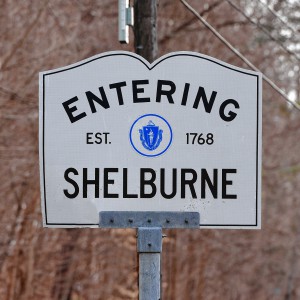 Serious barn fire averted due to quick response in Shelburne
Serious barn fire averted due to quick response in Shelburne
 Bridge of Flowers in Shelburne Falls to open on plant sale day, May 11
Bridge of Flowers in Shelburne Falls to open on plant sale day, May 11
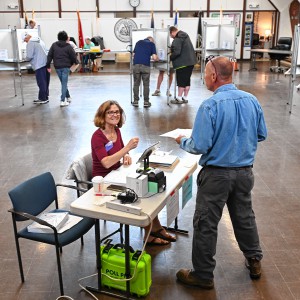 Political newcomer defeats Shores Ness for Deerfield Selectboard seat
Political newcomer defeats Shores Ness for Deerfield Selectboard seat
 Roundup: Pioneer baseball wins Suburban League West title following 2-0 win over Hopkins
Roundup: Pioneer baseball wins Suburban League West title following 2-0 win over Hopkins
 As I See It: Between Israel and Palestine: Which side should we be on, and why?
As I See It: Between Israel and Palestine: Which side should we be on, and why?
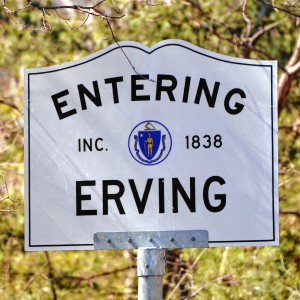 Employee pay, real estate top Erving Town Meeting warrant
Employee pay, real estate top Erving Town Meeting warrant
The state last participated in a forest management reconsideration 13 years ago, in the program called the Forest Futures Visioning Process. In an interview, Moomaw sounded more optimistic about Forests as Climate Solutions, while admitting some faults.
“I understand the frustration,” Moomaw said. “It was unclear how the process was going to work.”
Moomaw is a climate scientist who staunchly believes that more carbon sequestration will come from the reduction of forest harvesting. He explained the 12 members of the committee come from a variety of backgrounds, including climate science, forest ecology and the forestry industry, and their separate expertise and opinions will be presented in the study.
“People have different views and all those views are in there,” he said.
He explained this committee doesn’t have any power over the policy as it is only making guidelines, but he thinks these guidelines will be highly influential for the future of forests in the state.
Crane explained when it comes to forest management, there are no broad statements and “one-size-fits-all” decisions to be made. As an example, he said, old and mature forests can be more vulnerable to storms than younger forests. Often, foresters will choose to create younger forests around watersheds, such as the Quabbin Reservoir, to protect the land.
“I don’t think it is a static thing. We are learning and going to continue to learn about the impacts of climate change,” Crane said. “Things are going to happen that we can’t anticipate. I hope that we are going to be smart enough to adapt and we will be guided by science and not politics.”
Crane said many anti-logging activists claim the process is “cloaked in darkness” when in fact it is very open to public input. Rather, he feels activists are more upset with the conclusions of the state than the process. Likewise, Ken Conkey of John H. Conkey and Sons Logging in Belchertown said he thinks the process state agencies use around forest management is incredibly open to the public.
Conkey said the Department of Conservation and Recreation proposes projects that then go through public input sessions. The trees to be harvested are then marked, after which foresters look at them and make bids to purchase and sell them as timber. John H. Conkey and Sons was contracted to log an approximately 80-acre old oak stand in the Wendell State Forest in 2019, a process that was often interrupted by protesters.
Conkey feels activists involved in the anti-logging movement are often misguided when they think there are large corporations behind forest management.
“The anti-logging movement is actually an anti-agricultural and anti-farming movement,” Conkey said. “Most of us are small family businesses.”
Dziura noted that one piece of the process he felt was unfair came during the second public comment input period on Nov. 14. He said this session was supposed to have the finished guidelines ready for comments. Instead, the Executive Office of Energy and Environmental Affairs presented 15 questions about forest management for attendees to answer. However, Dziura said these questions did not allow for the opinion that the forests should not be managed.
He thinks this is a pattern seen regularly in the Department of Conservation and Recreation and Executive Office of Energy and Environmental Affairs. He brought forward the study “Department of Conservation and Recreation Special Commission,” prepared by the UMass Donahue Institute in 2021, that notes concerns over communication, community engagement and transparency as common themes held by stakeholders working with DCR.
Dziura noted many people think there should be no logging on state lands, mentioning a petition relating to this issue that was signed by 4,900 people and brought to then-Gov. Charlie Baker last year.
Ayers echoed these ideas, saying state agencies often “abuse their discretion” to disregard science.
“We are going to be struggling and fighting and disagreeing about the future of our forests for the next century if we are lucky,” Crane said, “and for decades if we are not.”
Bella Levavi can be reached at blevavi@recorder.com.

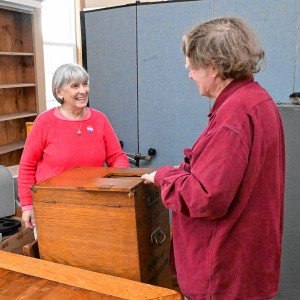 New Salem election ushers in new Selectboard member
New Salem election ushers in new Selectboard member Community Legal Aid expands Disability Benefits Project to Franklin County
Community Legal Aid expands Disability Benefits Project to Franklin County
